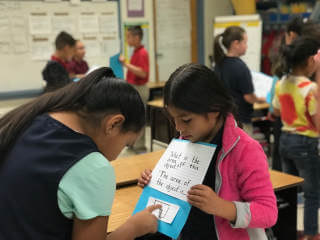Review key vocabulary terms is an critical part of teaching and an vital aspect of SIOP. When teachers give a comprehensive review of important terms, students have the opportunity to notice which ones they own and which ones need more attention. Teachers are also able to see which vocabulary terms are easy and which ones still pose problems.
It's not sufficient to teach vocabulary at the beginning of the lesson never to work with it again. Students need multiple opportunities to interact with vocabulary at multiple stages during a lesson. Providing students with a comprehensive review of the terms that are important accomplishes a number of objectives:

SIOP challenges educators to make vocabulary learning a more conscious act for both teachers and learners. Just glancing at the components and features hints at the important role vocabulary plays (it is directly mentioned at least 5 times).
Reviewing is a vital step in teaching and in learning. Thus, the question is not "should I review vocabulary?" but, rather, "how should I review vocabulary?"
This is important for a number of reasons. First, if students aren't engaged with the way the review is happening, it's probably not worth doing it. Student engagement is critical, and students tend to pay less attention to something that has already been done.
Next, if the way you taught it didn't work the first time, the chances are that it won't work the second time. Lastly, students attain true ownership when they can use their vocabulary knowledge in new ways and under new circumstances.
Giving students a review of vocabulary in a different way than was taught is a strategy that sets students up for success.

First, As you know, there are four components to vocabulary ownership:
Of these four, usage is the most powerful. When students can use the word (in speaking and/or in writing), they demonstrate that they can use the word in context. Their understanding of the word solidifies.
Next, when students use the vocabulary to interact with the content, they also have the opportunity to review the content. This keeps both the students and their teacher focused on the academic application of the phrases they have been learning.

At some point during the review, students should be given the opportunity to clearly recognize which terms they own and which ones they are still renting. There are a number of reasons why this is so important:
If you are interesting in own the principles of SIOP, contact TESOL Trainers today.
We have both remote and traditional PD that will help any teacher transform how they approach teaching and learning.
Our professional development workshops are engaging and empowering. People complete our training with the inspiration to implement the practical strategies and techniques in their classroom contexts.
Click the button below to claim your free ebook and join our mailing list.